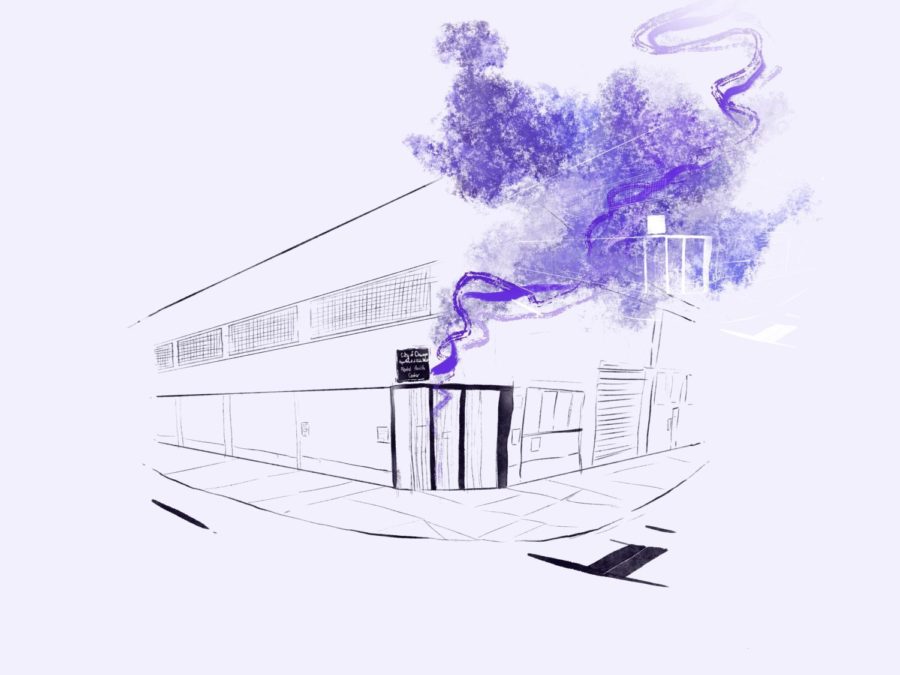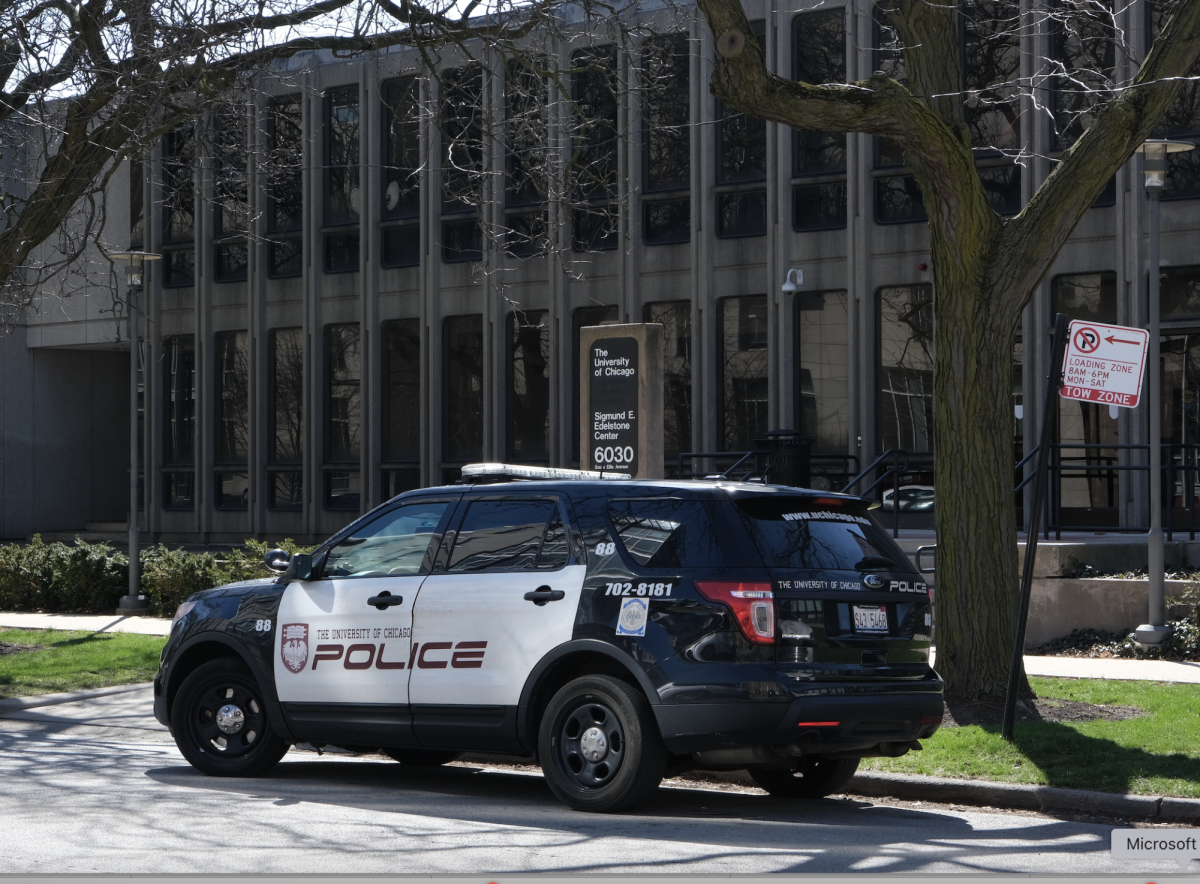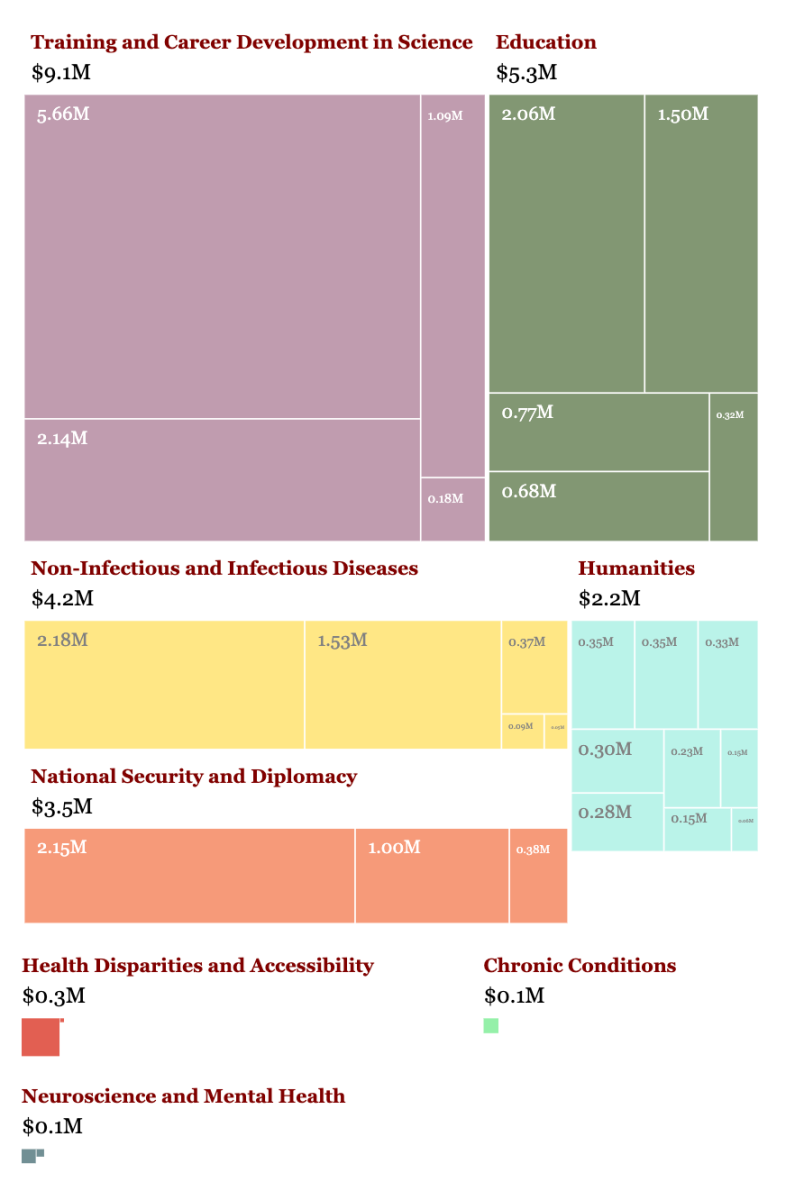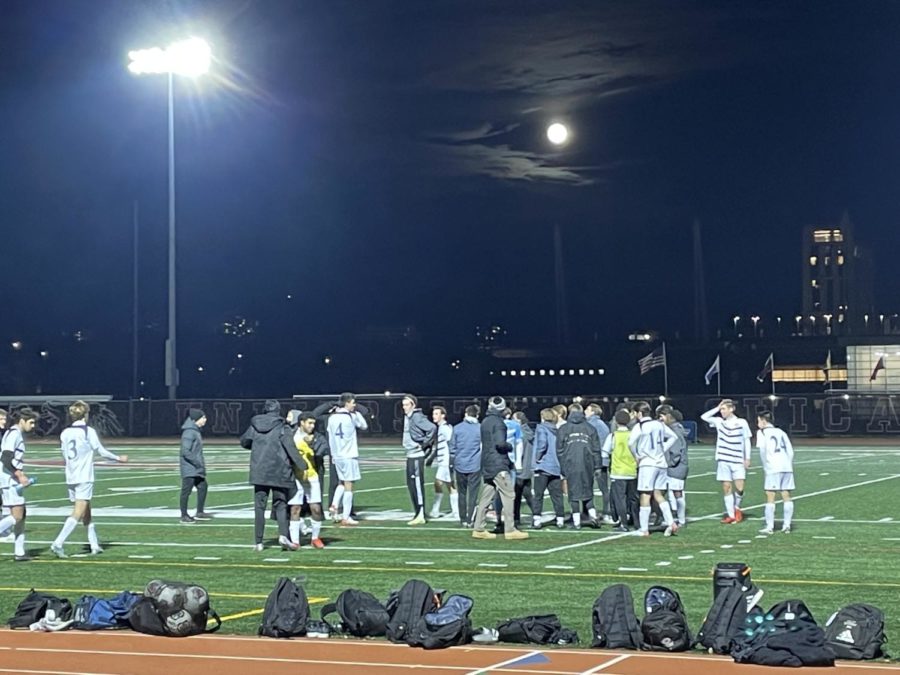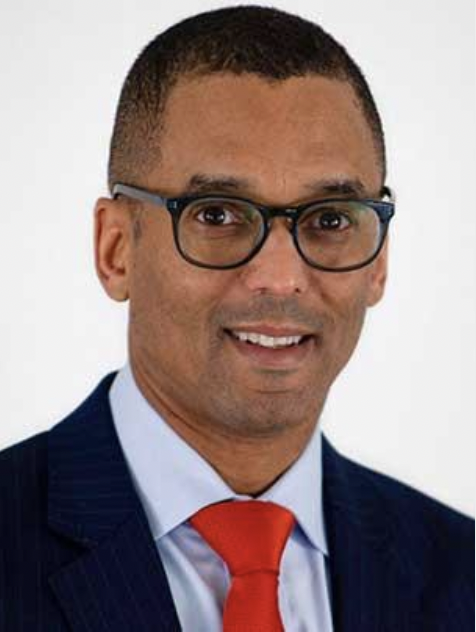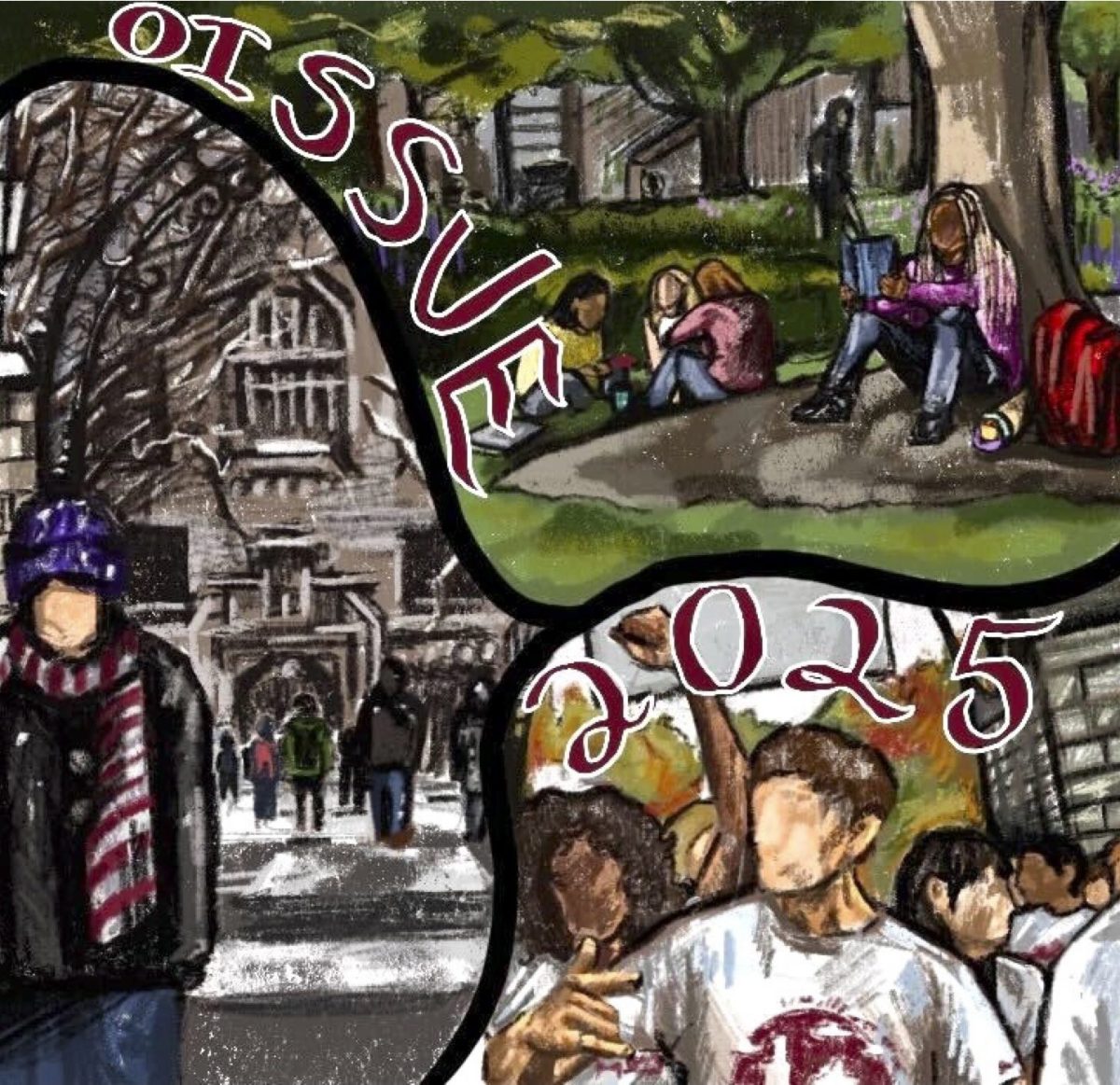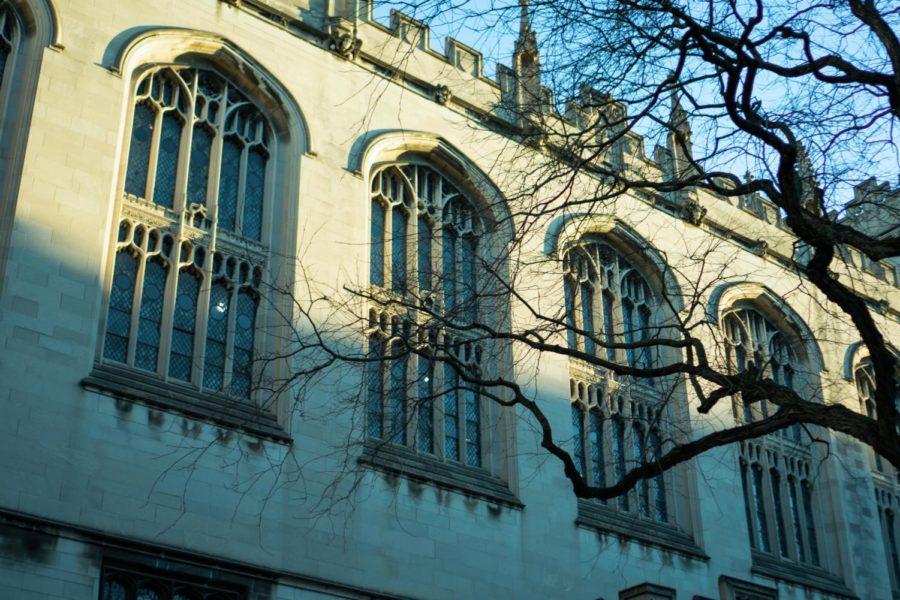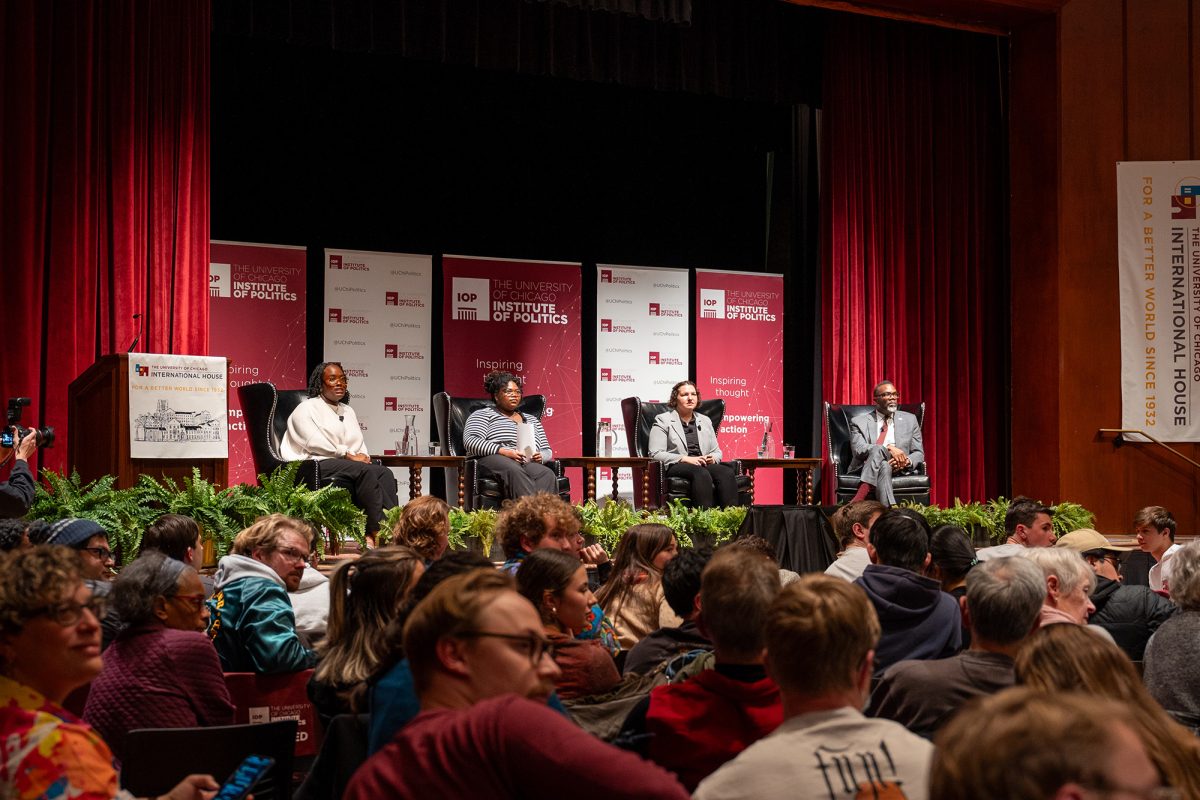“A $4 increase for every $1,000 you currently pay in property taxes is equivalent to the price of one latte,” the pamphlet reads, advertising the newest initiative to hit the ballot between rows of cartoon coffee cups. “Say yes to mental health!”
On November 8, Chicagoans will vote on a binding referendum, a type of vote in which the ballot results must be acted upon by the overseeing governing bodies, that would expand mental health services across the Southeast side by way of a 0.025 percent property tax increase. If approved, the funds will provide free mental health services for in-need residents by establishing a new community mental health center. Additionally, the approved referendum will restore vital mental health services including outreach in local school communities, veteran-specific care, and family counseling.
For the Coalition to Save Our Mental Health Centers, a group of activist organizations pushing the ballot initiative, the current measure is just one more stone cast in the decades-long fight to defend and protect Chicago’s low-income and underinsured residents. The Coalition was born in opposition to former Mayor Richard M. Daley’s 1991 plan to close the 19 community health centers erected over the course of the 1960s and 1970s. Beyond the formation of the Coalition, these measures have been met with fierce instances of local resistance: according to The Chicago Tribune, in 2012, 23 individuals were arrested after barricading themselves inside of the Woodlawn Mental Health Clinic in the South Side in protest of its closing.
Now, only five of these public centers remain. Today, the Coalition advocates for the reopening of the clinics lost over time. Their longer-term goal is a shift towards non-police response models to mental health crises. Generally speaking, the non-police response model is designed such that instead of having police officers arrive at the scene, officers will be replaced by social workers, mental health professionals, and those who possess the necessary training to calm and properly aid those in crisis, according to the Center for American Progress.
Non-police responder models have already been instituted across the country in places like Eugene and Springfield, Oregon, according to the Justice Teams Network, by Oregon’s CAHOOTS (Crisis Assistance Helping Out On The Streets), which provides initial contact and transport for those who are in the midst of mental health crises by way of a mobile intervention team. According to the Eugene Police Department, each van is staffed with an experienced crisis worker, along with a nurse or an EMT. In CAHOOTS’s 2021 Program Analysis, CAHOOTS’s divert rate (the rate of calls diverted from the police to CAHOOTS personnel) has ranged from 3 to 8 percent since its establishment in 1989. Similar programs have also been established in California and the United Kingdom.
According to the Coalition’s website, the Coalition spearheaded what they term a “re-envisioning” of community mental services through the 2004 development of the EMHSP model. EMHSPs, or Expanded Mental Health Services Programs, sought to restore services outside of the then 12 city-run clinics, culminating in the of the Community Expanded Mental Health Services Act. According to the, this act allows for any Chicago community to create a community initiated, funded, and approved mental health center (or EMHSP), expanding and extending mental health services for mentally ill residents who need the assistance of their communities in overcoming or coping with mental or emotional disorders.
There is reason to believe the measure is popular: the Coalition’s straw polling suggests that almost 90 percent of voters support the premise behind the referendum.
“Chicagoans can’t even agree what the weather is on any given day,” said fourth-year Melia Allan, an intern with Southside Together Organizing for Power (STOP). “But they agree and have a huge desire for mental health care.”
STOP organizes mental health patients and providers in the name of re-opening the closed clinics and improving the current standing public mental health crisis response and care system, according to STOP’s website. They work in collaboration with the Collaborative for Community Wellness (CCW), which connects mental health professionals, community-based organizations, and community residents to address and combat the lack of mental health service access in Chicago. According to the CCW, police involvement is one piece of the problems facing Chicago’s victims of mental health crises. In Chicago, police are the primary responders to mental health crises. CCW argues that their presence is an escalation to tense situations that may exacerbate violent incidents and trauma, rather than initiate and promote healing.
While the referendum up for voting in November explicitly focuses on establishing new community mental health centers in West Town and Southeast Chicago, which would provide free-of-charge mental health services to residents living in Woodlawn, South Shore, Kenwood, and Hyde Park, STOP’s long-term plan for Chicago’s future with mental health depends on the Treatment Not Trauma proposal. The proposal has two components. First, to reopen all of the closed public mental health centers within the city of Chicago. Second, to promote a non-police crisis response for mental health emergencies.
“Even under challenging conditions, the City remains committed to investing in the future of our residents…and more than $18.6 million in new investments are included in the 2021 budget…[including] an additional $5.25 million in funding for community-based violence prevention and reduction efforts,” the Office of the Mayor wrote in a press release announcing Mayor Lightfoot’s 2021 Budget Proposal. “These resources will…provide funding for high-risk youth and launch of the co-responder model pilot that would involve trained mental health professionals, community paramedics and Crisis Intervention Team-trained police officers co-responding to certain 911 calls.”
The group advocates for a 24-hour emergency mental health hotline that would work directly with the five remaining clinics. To supplement this hotline, the CCW hopes to also see social workers and paramedics working in tandem to respond effectively and efficiently to mental health crises as they occur, with the ultimate goal of connecting patients with clinics to support sustainable and long-term recovery.
“Mayor Lori Lightfoot’s 2020 proposal was oriented around the “co-responder model,” which brings police officers along with professional crisis counselors and EMTs during active mental health crisis situations. According to Lightfoot, the proposal was prompted by the need for crisis responses to be delegated to professionals beyond the police, ensuring that mental health-related calls do not take time away from crises that would most benefit from the police’s presence.
“There are no magic wands to wave,” Lightfoot said during the 2021 City Budget address proposal, during which she first introduced the co-responder model. “Whatever course we take must be tested on the streets of Chicago and must be built to address our urban realities, and not those of some other city that does not reflect our diversity, our history, or our current reality.”
However, the Collaborative for Community Wellness openly rejected Lightfoot’s push for the co-responder model, instead seeking for the model’s funds to be reallocated to fully funding the Treatment Not Trauma proposal. Additionally, during Allan’s time with STOP, they have heard grievances from police officers themselves, who largely feel unprepared and unqualified to de-escalate mental health crises.
“Quite a few police officers who we have spoken to have said, ‘Yeah, police officers aren’t social workers. I’m not really trained for this,’” Allan said. “At the same time, mental health-related calls take significantly longer to answer than a routine police call, which has police officers calling for change such that calls that genuinely require police presence can be prioritized.”
According to a 2015 report by the Treatment Advocacy Center, having a mental illness increases one’s chance of being killed in a police encounter 16-fold. The report urges lawmakers to restore the public mental health system, arguing that this will prevent mental health crises from escalating to the point of a police response.
Lightfoot has made massive investments in mental health, capped by an $8 million appropriation in 2020. But the mayor’s strategy of funding private nonprofits, rather than reopen closed public mental health centers, has garnered criticism from progressive alderpeople. 33rd Ward Alderman Rossana Rodriguez Sanchez has argued that the resulting care from private nonprofits will not be high quality, and that more investment is needed in the Chicago Department of Public Health.
“We continue to fight for the care we all deserve,” Rodriguez Sanchez told WTTW of the 2020 plan. “For the jobs that clinicians deserve. This neoliberal model ain’t it.”
Lightfoot also pledged to spend $25 million to restore the lost clinics during the 2019 mayoral campaign, yet as of June 2022, has instead opted to invest in 12 non-profit mental health organizations.
“Of course we should reopen the clinics,” Lightfoot said at a campaign forum in 2019. “But we have to go much further than that. We have to focus on building mental health infrastructure here in the city. There’s lots of different service providers that frankly…do a better job delivering services…than the clinics did.”
Critics also point to the accessibility issues of private rather than public services. The CCW’s 2021 Citywide Mental Health Needs Survey, which surveyed 378 residents across Chicago representing 45 of Chicago’s 50 wards between August 2020 to March 2021, found that two-thirds of respondents reported cost as a barrier to mental health services.
“These not-for-profit organizations are being publicly funded, but are not accessible to everyone in the city,” Allan said. “For example, if you are undocumented, you might not be able to get service at all of these clinics. Or, on the other hand, people have reported that there is often a co-pay of $20. This might not seem like a lot, but if you’re seeing a therapist once a week, that’s $80 a month. That’s a bill.”
While the EMHSPs are a productive and powerful tool, promoting ownership and autonomy to communities regarding just exactly what services are provided—as well as how and to whom—based on resident needs, STOP and its coalitions are equally invested in supporting the longevity of the existing clinics. On October 27, 2021, STOP celebrated—alongside the CCW and the Chicago Budget Coalition—the City Council’s approval of over $2 million to expand public mental health services: the first reversal of city policy and increase in funding for Chicago’s public mental health in 10 years. The investments were allocated to increase staffing at the public clinics by 72 percent and the hiring of 10 more clinicians, along with five new school outreach positions; these positions were created with the ultimate goal of providing Chicago public school students with more readily available mental health care.
“We will remain in this fight until there is a free public mental health center in every ward of Chicago!” STOP’s Public Health Organizer Cheryl Miller said the day after the reversal in STOP’s press release.
Today, while community members are on board with continuing further investment in mental health, shifting away from police response has been a harder sell, Allan said.
“In terms of the topic of police response, we’ve gotten some people who are generally supportive about opening up the closed mental health clinics but are a little bit more on the fence about the non-police crisis response because they would prefer to have a police officer on the scene,” Allan said. They added that, anecdotally, many voters confuse the Coalition’s efforts with the mayor’s—and assume that the proposal is already in place.
“We definitely do see some opposition. Of course, some people don’t hear out the full question or initiative, or are simply like, ‘Oh, I’m not mentally ill, so I don’t really need that,’” Allan said. “Some people are also hesitant regarding the funding, but the answer is that there’s actually already money available from the state, and the city just needs to apply for a grant. But inevitably, there may be a taxpayer increase, and people can be nervous about that.”
Advocates say they hope the referendum will help turn the tide in the way the city addresses mental health.


